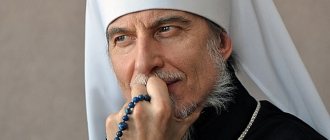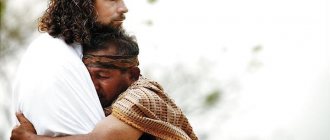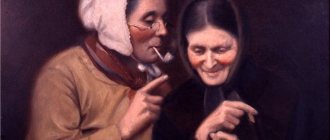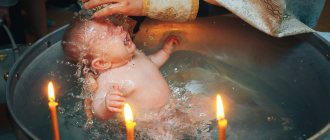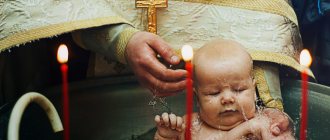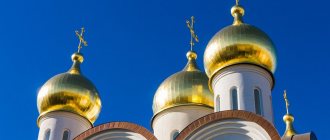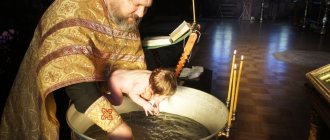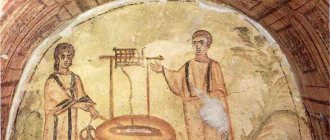Elder Paisiy Svyatogorets
(1924–1994)
See also the spiritual heritage of St. Paisius the Holy Mountain: Volume I, Volume II, Volume III, Volume IV, Volume V, Volume VI
On July 25, 1924, in Cappadocia (Asia Minor), a son was born to Prodromos and Evlampia Eznepidis in a large family. Baptized the child, now glorified, St. Arseny of Cappadacia named the baby Arseny, saying: “I want to leave behind a monk.” Many years will pass and the monk whom the holy elder “left behind” will write about him: “The life of my father was holy, and like a spiritual generator, which was set in motion by the great and all-encompassing love of God, it always miraculously communicated the grace of God not only to Christians, but and to the Turks, both believers and non-believers... He preached the right faith with a righteous life. His flesh melted away in feat from warm love for God, and he changed souls with divine grace. He had deep faith and healed many, believers and non-believers. Few words, many miracles. He was going through a lot and hiding a lot. Under the hard outer shell he hid his sweet spiritual fruit. Very strict with himself, he was the most tender father for his children. He taught them not to the letter of the law, but to its meaning, to diligence. As a servant of the Most High, he did not touch the earth, and as His fellow servant he shone to the world. He was glorified by God, whom he glorified with his life.”
At that time, Orthodox families in Cappadocia experienced oppression from Turkish Muslims, and many were forced to leave their homeland. In September 1924, refugees arrived in Greece. The family settled in Konice. Little Arseny dreamed of becoming a monk since childhood; he ran into the forest and prayed selflessly there. After graduating from school, Arseny got a job as a carpenter. In 1945, he was drafted into the army, where he served for most of his service as a radio operator, showing extraordinary courage during the war. Often he himself asked to be assigned to the most dangerous tasks on the front line in order to take the place of his colleagues, citing the fact that he was free, and they had wives and children who were waiting for them. After the end of the service in 1949, Arseny, choosing the monastic path, went to Holy Mount Athos. In 1950, he became a novice of Elder Kirill, later abbot of the Kutlumush monastery. Some time later Fr. Kirill sent the novice to the Esphigmen Monastery, where Arseny received the ryassophore with the name Averky in 1954. He loved solitude, prayed unceasingly, and loved reading the lives of saints. M. Averky really enjoyed visiting the gracious elders.
In 1956, Elder Simeon tonsured Metropolitan Averky into the minor schema with the name Paisius, in honor of Metropolitan Paisius II of Caesarea. While living in the monastery, Father Paisius did not lose his spiritual connection with his spiritual father; he often came to the monastery to visit Elder Kirill. It happened that Father Paisiy found the answer to an exciting question in a book that the perspicacious elder immediately handed to him: the necessary words in it were previously underlined in pencil. The elder, seeing with spiritual vision the need of his spiritual child, knew in advance about the time when he would come. Through the prayer of his confessor, Father Arseny grew spiritually. Having identified for himself the main goal - “purification of the soul and complete subjugation of the mind to Divine grace,” he tried to achieve it by all means. He believed that all problems must be confronted with “patience, good thoughts and humility, so that the grace of God can help.” Having acquired the wisdom of the Holy Fathers, he later showed with his whole humble life that “the desires of the soul are abolished when its goal is unity with the goodness of God.” Despite the fact that he loved solitude since childhood, he trusted in God’s providence, and, by command from Above, began to receive pilgrims.
From 1958 to 1962, Father Paisiy lived in the monastery of the Nativity of the Virgin Mary in Stomio, where, by God’s providence, he had to spiritually help thousands of people who came to the monastery with their needs. Since 1962, Elder Paisios has lived in Sinai in the cell of Saints Galaktion and Epistimia. In 1964, the elder returned to Athos and settled in the Iveron monastery.
In 1966, the elder became seriously ill and part of his lung was taken away. In the hospital, the elder was looked after by sisters who wanted to found a monastery of St. John the Theologian. After recovery, the elder helped them find a place to build it and helped them spiritually until the end of their lives.
In 1967 Fr. Paisius went to Katunaki and settled in the Lavriot cell of Hypatia.
From the memoirs of Elder Paisius: “When I lived in Katunaki, one day during night prayer, heavenly joy began to take possession of me. At the same time, my cell, whose darkness was only slightly illuminated by the flickering light of the candle, began little by little to be filled with a beautiful bluish light. This mysterious light was extremely strong, however, I felt that my eyes could withstand its brightness. It was the Uncreated Divine Light, which many elders of Athos saw! For many hours I remained in the illumination of this wondrous light, not feeling earthly objects, and being in the spiritual world, completely different from the local physical one. Being in this state and receiving heavenly sensations through that Uncreated Light, I spent many hours without feeling time, with it the sunlight seemed like a full moon night! However, my eyes gained the ability to withstand the brightness of that light."
Since 1968, the elder settled in the Stavronikita monastery. Having learned about the elder’s new place of residence, pilgrims rushed to this monastery.
The elder’s love for people was boundless, he tried not to denounce anyone publicly, for everyone he had a piece of sweet delight and a mug of cold water, good advice and prayerful support. All day long he consoled the suffering and filled souls with hope and love for God, and at night he prayed, allowing himself to rest for only 3-4 hours. When the elder’s spiritual children asked him to feel sorry for himself and to rest, he answered: “When I want to rest, I pray. I learned that only prayer correctly frees a person from fatigue. So pray and study.” He said: “I always try not to deal with my pain. I have the pain of other people on my mind, and I make this pain my own. So we are obliged to always take the place of others... Good is good only if the one who does it sacrifices something of his own: sleep, peace and the like, that’s why Christ said: “... from his deprivation...” (Luke 21, 4). When I do good, having rested, it does not cost much... When I am tired and make a sacrifice in order to help another, I experience heavenly joy... My own peace is born from the fact that I bring peace to another.”
The elder read the entire Psalter every day. At night the elder prayed for the whole world. Separately, he offered prayers for those who are in hospitals, for quarreling married couples, he prayed for everyone who finishes work late, for everyone traveling at night...
One night, when the elder was praying, it was revealed to him that at that moment a man named John was in danger. The elder lit a candle and began to pray for John. The next day, the same young man for whom he had prayed came to the elder. John told him that it was at that hour when the elder began to pray for the salvation of his soul that, out of despair, he decided to commit suicide. He got on a motorcycle and rushed out of the city, only to ride off a cliff and crash. Suddenly the thought came to him: “They talk so much about this Paisia on the Holy Mountain, shouldn’t I go to him too.” Having met the elder, John found a loving spiritual father, through whose prayers he set out on the true path.
Through the prayers of Elder Paisius, many believers received healings. One day, the father of a deaf-mute girl turned to the elder for help. He said that several years ago, before the birth of the child, he put obstacles in the way of his brother, who wanted to become a monk. Seeing the man’s sincere repentance, Elder Paisios prayed for the girl’s healing and promised: “Your daughter will not only speak, but will also deafen you!”
After a while the girl began to speak.
It often happened that people who had difficulty walking, suffered from rheumatic diseases, and the disabled, to everyone’s surprise, left the elder healed. He advised one desperate couple after many years of unsuccessful treatment who wanted to adopt a child to wait to adopt, and promised: “Now, with God’s help, you will have a child!” Soon, through the prayers of the elder, the long-awaited child was born.
One day, the father of a girl with cancer came to the elder and asked the elder to pray for his daughter’s healing. The elder replied:
– I will pray, but you, as a father, must make some kind of sacrifice to God, because the sacrifice of love greatly “predisposes” God to help... Quit smoking out of love for your daughter, and then God will cure her. Through the prayer of the elder, the girl recovered. However, after some time, the girl’s father, forgetting about his vow, began smoking again - and the illness suddenly returned. When the man again arrived at the Holy Mountain and turned to the elder for help, the elder said:
“If you, as a father, do not have enough piety to sacrifice your passion and save the life of your child, then I cannot help you.”
Elder Paisios said: “Because no one wants to control themselves, everyone wants to live uncontrollably, according to their own will. But this leads to complete disaster, because, yes, God gave man the freedom to do as he wants, but he also gave him reason so that he understands his limitations and the boundary between right and wrong. When a person acts presumptuously, without taking into account his weakness, then he makes mistakes.”
Often the relatives of those who, according to doctors, were not destined to survive after severe operations and incurable diseases, turned to the elder for help. There are many testimonies about the miraculous healing of hopelessly ill people through the prayers of the elder. However, the health of the old man himself deteriorated catastrophically from year to year.
Back in 1966, after a pulmonary disease, as a result of taking strong antibiotics, the old man developed pseudomembranous colitis with sharp abdominal pain. Despite the pain, he stood for hours, receiving people who wanted to take his blessing. The elder believed that pain greatly helps the soul and humbles it, and the more sick a person is, “the more benefit he receives.”
Since 1988, the old man developed an additional complication in the intestines, accompanied by bleeding. By 1993, the elder’s condition became very serious, but Elder Paisios did not stop receiving pilgrims. When his spiritual children begged him to see doctors, he replied that “such a condition is very helpful in spiritual life, so it is not beneficial to drive it out.” The elder bravely endured the suffering that befell him, never asked for anything for himself, and prayed only for the healing of others. At the insistence of his spiritual children, he nevertheless went to the hospital for treatment; doctors determined the presence of a cancerous tumor. In 1994, the elder underwent two operations, but his health continued to deteriorate: on July 11, he took communion for the last time. On July 12, 1994, the elder gave up his soul to the Lord and was buried in the monastery of St. John the Theologian in Suroti Thessalonica.
Lord, rest the soul of Elder Paisius, rest with the saints, and through his prayers save us.

